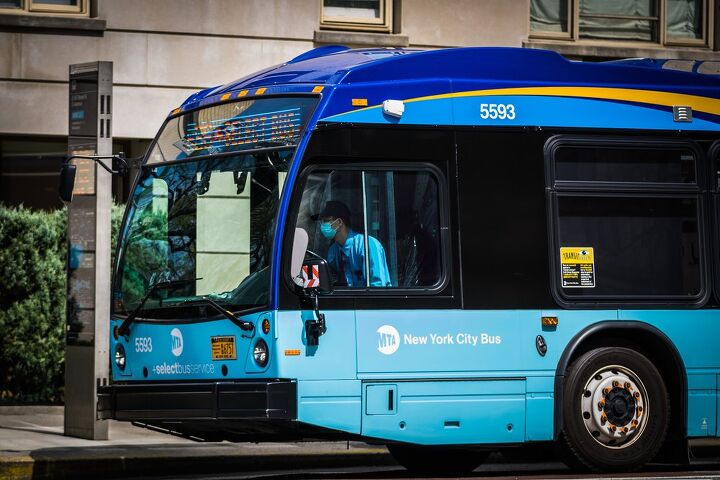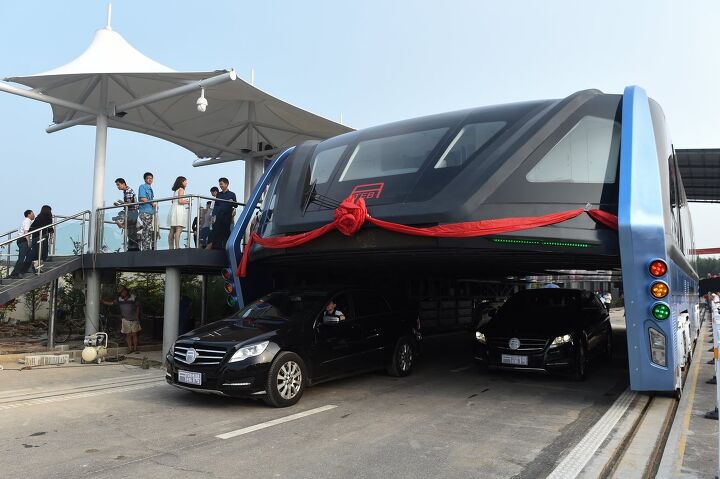#Busses
U.S. Issuing $1.66 Billion in Grants for Zero-Emission Buses
On Tuesday, The Department of Transportation announced that it was prepping $1.66 billion in grants so that cities can purchase zero-emission buses. Headed by the Federal Transit Administration, the program is aimed at getting 1,800 new vehicles into metropolitan areas – which the White House claimed would effectively double the number of electrified buses currently in operation. Though a portion of the funds will be earmarked for buying up public transportation reliant on hybrid-electric, natural gas, and diesel powertrains.
Ohio Self-driving Shuttle Service Stalled After Minor Incident
You may recall the autonomous Linen LEAP shuttle service that launched in Columbus, OH earlier this month. Well, the city placed the program on pause last week because someone fell during an abrupt stop. Smart Columbus, the group responsible for the service, has taken both EasyMile EZ10s off their route for assessment by the manufacturer.
Additional details kept us hip to how the program has done so far. According to local outlet WCMH-TV, the twin shuttles have moved 50 people around the Linden area since launching on February 5th. That averages out to a little more than three riders per day, which we don’t have to tell you isn’t great value for the money when the entire project costs millions. But that was never Smart Columbus’ plan. The intended goal was to connect a subset of carless residents in one neighborhood with essential services and other parts of the city.
That aspect of the scheme hasn’t gone seamlessly, either.
Autonomous Mass Transit Arrives in Ohio
Hoping to reconnect the South Linden neighborhood with the rest of Ohio’s capitol, the city of Columbus has launched an electric shuttle program funded primarily by the federal government. The municipality frames it as the first daily, public residential autonomous shuttle to be operated by an American city. While other U.S. towns exist that would definitely disagree with the claim, Columbus may be the first to run a self-driving shuttle seven days a week on the government’s dime.
Service began Wednesday, with the three-mile route open to all residents free of charge.
As the sole recipient of a $40 million USDOT grant tied to the Obama administration’s Smart City Challenge, Columbus opted to use EasyMile EZ10s for the project. They’re about what you’d expect — generic electric boxes with a small footprint and loads of headroom. The city received another $10 million from the Paul G. Allen Family Foundation, which acted for seed money for Smart Columbus’ Linden LEAP shuttle program.
Transit Authorities Tepid On Electric Buses Despite Promising Tech
Despite a surplus of cities seeking ways to reduce air pollution, electric buses haven’t taken off in the United States as expected. While analysts still anticipate a sudden surge in electrification in the years to come, present-day transit authorities have continued opting for dirty diesels as the primary method of moving urbanites around town.
The primary hurdles are infrastructure and cost. Whereas subway tunnels come with equipped with a third-rail ready to deliver the voltage necessary for mass transit, above-ground applications abandoned wire networks the second the trolley fell out of fashion. Electric buses don’t need either, but they do require reliable charging infrastructure and a larger-than-average initial investment.
China's Idiotic Elevated Bus Concept Turned Out to Be a Scam
Beijing, like most major metropolitan areas, has a problem with traffic. For a time, Chinese officials thought they had been sent a solution to gridlock in the form of a futuristic-looking urban conveyance dubbed the Transit Elevated Bus (TEB-1).
While not technically a bus at all, the vehicle acts as more like a catamaran on rails, moving a few hundred people over traffic as a colossal trolley. The concept for the TEB has been in existence since the late 1960s, however, no country had ever bothered to build one before China — and for good reason.




















Recent Comments